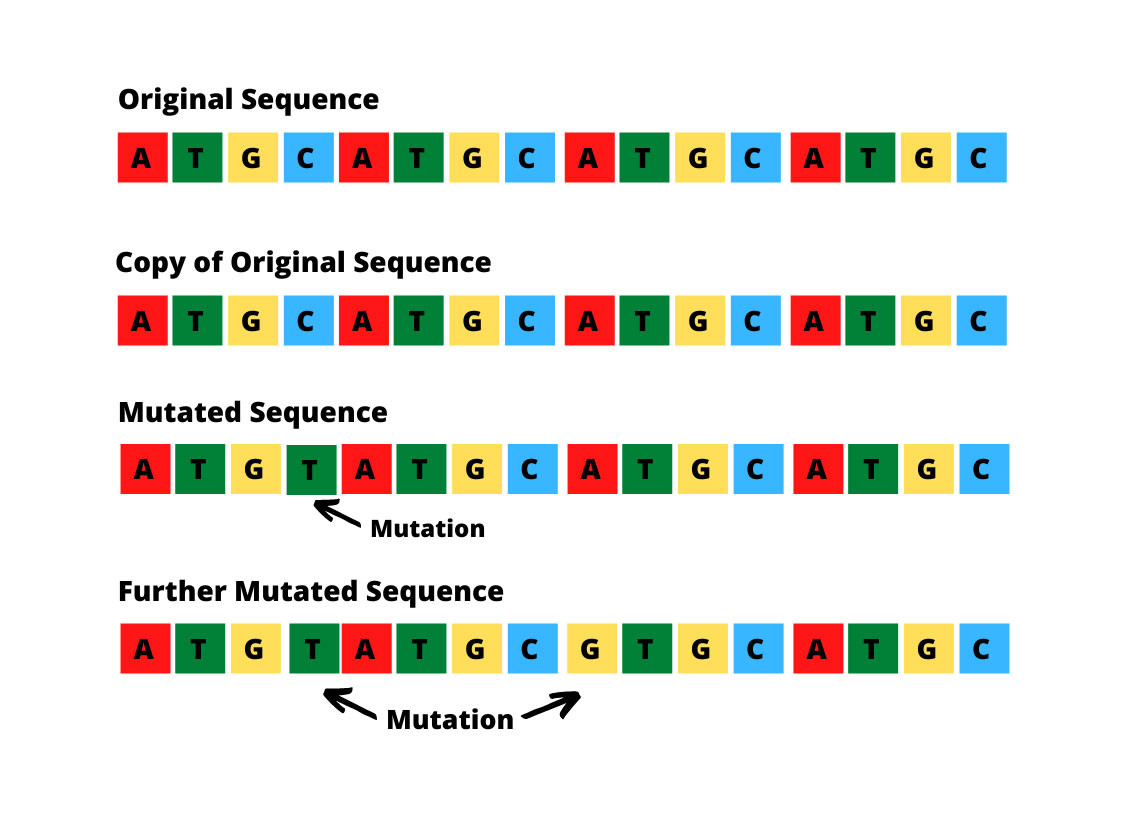
EXPLAINER: Understanding COVID-19 variants
The recently discovered Omicron variant of COVID-19 serves as a reminder that the pandemic is ongoing. The longer a virus persists, the more opportunity the virus has to mutate and evolve.
Understanding strain, variant, mutation
When it comes to describing various forms of COVID-19 and viruses as a whole, it is common for many to use the terms strain, variant and mutation interchangeably. However, these terms each hold different meanings.
“Strain” is by no means the proper synonym for variant. The strain is the subcategory of a particular virus, in this case coronavirus. SARS-CoV-2, more commonly known as COVID-19, is a strain of coronavirus.
A mutation is a single change in the genetic material of a virus. It is a mutation or multiple mutations that change a virus into a new variant.
A variant is the sequence of a virus that is made up of new mutations which make it different from another variant.
Why do variants of viruses form?
Viruses’ primary goal is to replicate. As a virus spreads and continues to replicate, sometimes ‘errors’ form in the process of replication. This process is similar to a group of people attempting to make multiple hand-written copies of a document. Inevitably, mistakes begin to occur in the copying process to where copies begin to differ from the original, possibly causing confusion in the meaning of the original.

As a virus replicates, the genome sequence expands, but mutations – the errors in replication – happen, causing differences in the sequence, thus leading to new variants of the virus. These mutations may have little to no impact on the virus’ behavior.
However, some mutations make the new variants more competitive than their predecessors, spreading easier or increasing the seriousness of the virus’ illness. Variants like Delta and Omicron represent one of the SARS-CoV-2 who have mutated to become more transmissible and more competitive than previous variants.
These variants are generally monitored and classified into different categories by the Center for Disease Control and Prevention.
- Variants of interest – Has genetic characteristics that predict greater transmissibility, evasion of immunity or diagnostic testing or more severe disease compared to early forms of the virus.
- Variants of concern – Documented to be more infectious, more likely to cause breakthroughs or re-infections of vaccinated or previously infected people. These variants are more likely to cause severe disease, evade diagnostic tests or resist antiviral treatment. Alpha, Beta, Gamma, Delta and Omicron variants of the SARS-CoV-2 coronavirus are classified as variants of concern.
- Variant of high consequence – A variant current vaccines do not offer protection against. There are currently no SARS-CoV-2 variants of high consequence.
Why Greek names?
The World Health Organization announced in May that it would begin naming the different COVID-19 variants after the letters of the Greek alphabet. This decision comes in part to remove the political and stigmatizing effects of naming variants and viruses after their country of origin. Such an act has been a long time coming, as the WHO released a report detailing the best practices for naming viruses in 2015.
The CDC offers the following information in regard to the Omicron variant:
- The Omicron variant likely will spread more easily than the original SARS-CoV-2 virus. CDC expects that anyone with Omicron infection can spread the virus to others, even if they are vaccinated or don’t have symptoms.
- More data is needed to know if Omicron infections, and especially re-infections and breakthrough infections in people who are fully vaccinated, cause more severe illness or death than infection with other variants.
- Current vaccines are expected to protect against severe illness, hospitalizations and deaths because of infection with the Omicron variant. However, breakthrough infections in people who are fully vaccinated are likely to occur. With other variants, like Delta, vaccines have remained effective at preventing severe illness, hospitalizations and death. The recent emergence of Omicron further emphasizes the importance of vaccination and boosters.
How to combat variants
Vaccines – The CDC says vaccines remain the best public measure to protect from COVID-19, slow transmission and reduce the likelihood of new variants emerging. COVID-19 vaccines are highly effective at preventing severe illness, hospitalizations and death. Scientists are currently investigating Omicron, including how protected fully vaccinated people will be against infection, hospitalization and death. The CDC recommends that everyone 5 years and older protect themselves from COVID-19 by getting fully vaccinated. The CDC also recommends that everyone 18 years and older should get a booster shot at least two months after their initial J&J/Janssen vaccine or six months after completing their primary COVID-19 vaccination series of Pfizer-BioNTech or Moderna.
Masks – The CDC continues to recommend wearing a mask in public indoor settings, in areas of substantial or high community transmission, regardless of vaccination status. The CDC provides advice about masks for people who want to learn more about what type of mask is right for them depending on their circumstances.
Getting Tested – Getting tested continues to be paramount in order to know how to proceed if one is positive or negative for COVID-19. Tests are still widely available for free.
The CDC keeps track of the current states the Omicron variant has entered. Texas is one of the states, and Omicron was recently confirmed to have infected individuals in Harris County and the Houston area. As Omicron continues to be monitored, Delta is the primary variant spreading throughout the United States.
With the COVID-19 pandemic ongoing, people are encouraged to remain vigilant during the holidays, get vaccinated if they have not already, get one’s booster shot if they have not, and get tested before and after traveling.
